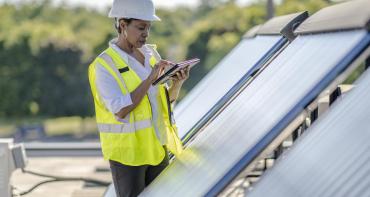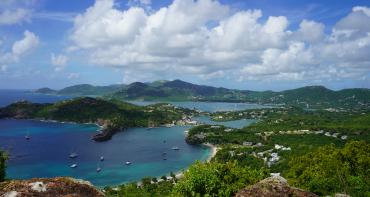The Commonwealth is gravely concerned about the state of the ocean and the lives and livelihoods that it nurtures.
The ocean is arguably the Commonwealth’s single greatest natural asset: 49 Commonwealth countries have coastlines, and 25 are Small Island Developing States (SIDS). Together, we are taking concerted action to protect and restore the ocean and promote its sustainable use.
The Apia Commonwealth Ocean Declaration for One Resilient Common Future was adopted at the 2024 Commonwealth Heads of Government Meeting in Samoa and takes its name from the coastal capital city, Apia.
The pivotal declaration is far-reaching and is designed to protect the ocean in the face of severe climate change impacts, pollution and exploitation.
The declaration paves the way for robust, ambitious, innovative and transformative action for a common wealth of shared ocean prosperity, resilience and sustainability that builds on national and collective efforts to protect the ocean and use it sustainably.
Read the declaration
It is fitting that our first ocean declaration is adopted in the Blue Pacific continent given climate change has been recognised as the single greatest threat to the security and well-being of our people.
The Apia Commonwealth Ocean Declaration for One Resilient Common Future must be a line in the sand from which the world collectively transforms ocean exploitation into protection and sustainable stewardship.
Prime Minister of Samoa, the Hon. Fiame Naomi Mata’afa
Key aspects of the declaration include:
- recognition of national maritime boundaries in the face of sea-level rise
- protection of at least 30 per cent of the ocean and restoring at least 30 per cent of degraded marine ecosystems by 2030
- urgent finalisation of the Global Plastics Treaty
- ratification of the high-seas biodiversity Agreement on Marine Biodiversity in Areas Beyond National Jurisdiction (known as the BBNJ Agreement)
- development and implementation of coastal climate adaption plans and strategies, including vulnerability assessments and nature-based solutions, such as blue carbon
- stepped up support for a sustainable blue economy with sustainable ocean plans, recognising the need for 100 per cent management of national waters
- reduction of emissions from global maritime shipping
- enhanced marine renewable energy targets to meet the global climate goal of tripling renewable energy capacity, agreed as part of the UNFCCC Global Stocktake in Dubai last year.
This work is complemented by the Commonwealth Blue Charter, which works collectively and actively to address the challenges affecting our oceans and coasts through the 10 Action Groups. These action groups will play a pivotal role in implementing the declaration.
To underscore the commitment of Commonwealth members, the Commonwealth Ocean Ministers Meeting will convene every two years to assess progress and advance initiatives.
Featured news
-
SIDS leaders say Apia Commonwealth Ocean Declaration key to accelerating climate action
- Commonwealth nations adopt pivotal ocean declaration in Samoa
- Commonwealth leaders champion global ocean action in Samoa
- Commonwealth nations adopt first ocean declaration as former British colonies seek reparatory justice
- Commonwealth nations adopt their first ocean declaration



